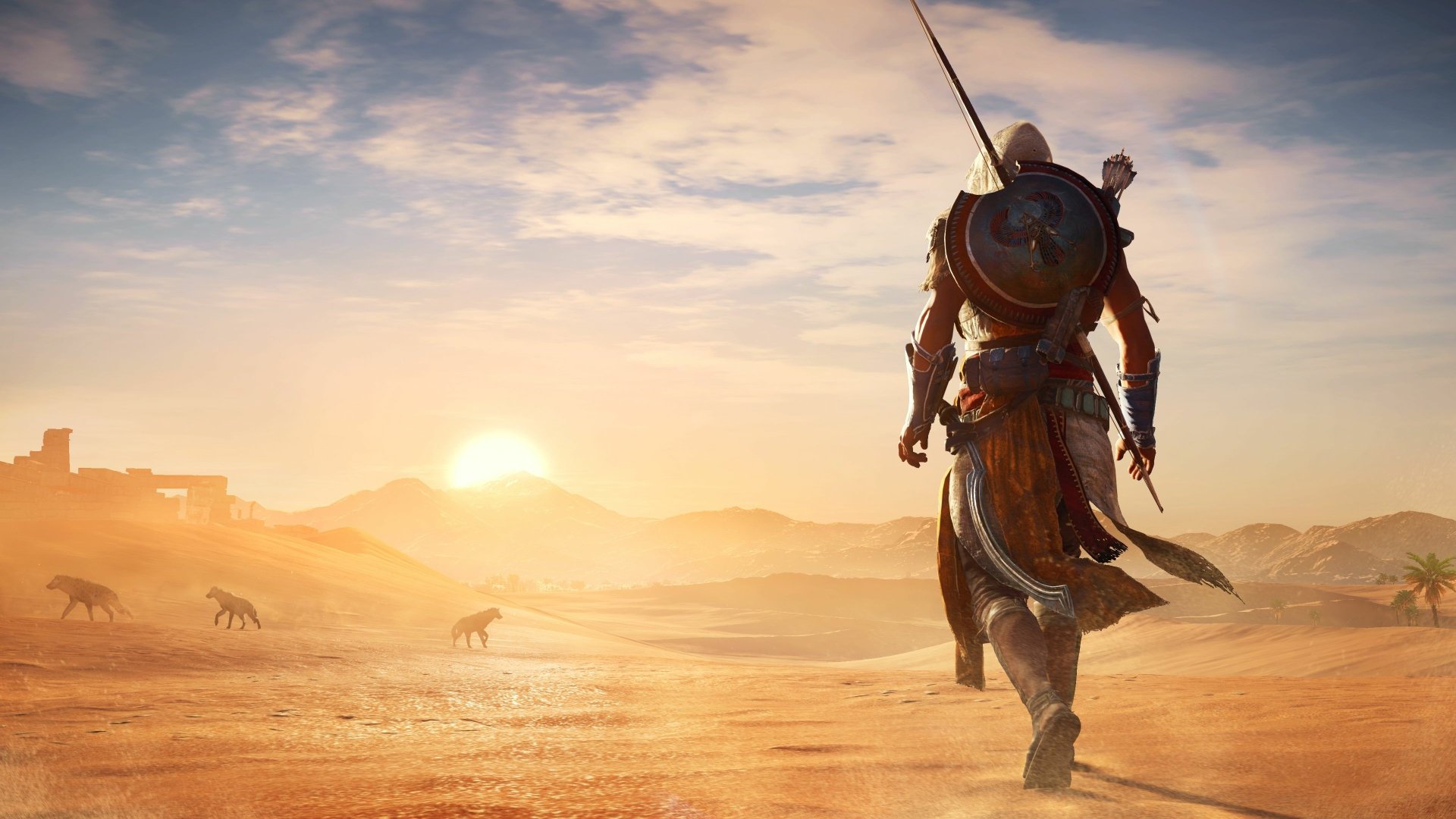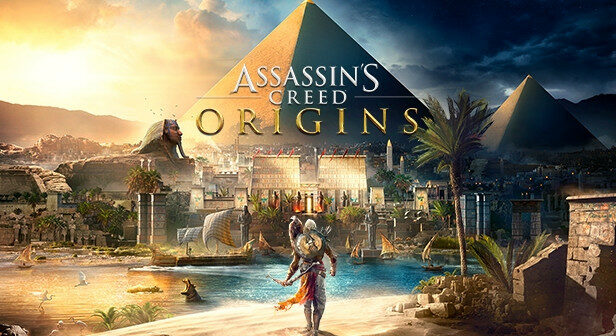With Assassin’s Creed Origins just recently celebrating it’s 5 year anniversary, I thought it would be interesting to look back on the Assassin’s creed franchise as a whole, and see just how Origins contributed.

Assassin’s Creed Origins Via Ubisoft
Up until the release of Origins, the Assassin’s Creed franchise was really becoming stagnant, a trend noticeable with many long running franchises. With Ubisoft games really feeling the brunt of this *cough* *cough* were looking at you Farcry. I’d like to start with Assassin’s Creed Unity, an ambitious title that crumbled under its own marketed expectations due to a plethora of reasons, a notable one being just how buggy the game was, (I still vividly remember watching glitch compilations after its release and finding the state of the game just laughable). Ubisoft would then attempt to recover from this through Syndicate. A game that divides the fan base to this day with many players claiming it to be their favourite game, whilst most players unfortunately came to see that the joy they found playing as Ezio in renaissance Italy all the way back in 2009 had been lost with time. So, Ubisoft broke their yearly release plan and had players wait two years for the next Assassin’s Creed game, in the hope they could bring back life to Assassin’s Creed.
This game being Assassin’s Creed origins. A remarkable step in the right direction for the Assassin’s Creed franchise. With a fresh new take on everything the franchise had to offer, a revamped combat system (as much as I hate to say it, comparable to the formula Dark Souls had popularized) breathing new life into what was previously a monotonous button mash parade of a combat system. A map vastly wider in scale than its predecessors, and a rewarding progression system that gave players a reason to fall in love with the franchise again as you customise your loadout to suit your playstyle, the world and its enemies equally. Remembering what it was like waiting until midnight to boot the game up, it really felt like this is the Assassin’s Creed experience I had been longing for since I fell in love with the series. However, with all these developments came a heavy price for the franchise in future. That being the length, fans of the franchise were used to yearly games that delivered, to a degree, what was expected. Typically clocking in 17-18.5 hours for the typical play-through, as was the case with Unity and Syndicate. Origins however came in at nearly double the time, taking the casual player 30-43 hours or even up to 84 for the avid collectionist. As passable as this may seem, especially in a gaming climate where games can provide up to 100 hours of gameplay and be enjoyable all the way through, referring to titles such as Red Dead Redemption 2. Origins did not meet the same fate however, feeling often too grindy with unimaginative side quests to bolster Bayek up to a level high enough to carry on through the main story. Unfortunately, this would be a trend that followed in the next instalments.
To see what impact origins had on the franchise I want to take a look at the games that followed, and what’s in store for the future of Assassin’s Creed. After the success of Origins, like most multi-million dollar game publishers do when something is successful, the formula for Assassin’s Creed that was given to players in Origins would be rehashed in later instalments. Particularly Odyssey, however, was being developed almost alongside Origins, explaining why it was so difficult to determine what was different other than a re-skin of the game. However, it suffered much the same issue as Origins in its length, coming in at a very similar playtime. Assassins’ Creed Valhalla, the most recent instalment in the franchise however, is really the game that begged to question whether Ubisoft had taken it a step too far in the wrong direction.
The game followed much of the same blueprint that was created with Origins, a vast open map, very similar combat system with some small alterations, and a progression system that seemingly would keep players engaged. However the playtime that the game demanded, was at that point, purely comical. Taking an average of 60 hours, not to get to any sort of achievement/trophy collection playthrough, but to simply finish the game. Like I said before, this would be no issue in some cases, many games have shown that you can make a long game that manages to stay appealing throughout, but Ubisoft had missed the mark with Valhalla. The game was faced with an irritatingly tedious mid game, giving players Deja vu as they complete what felt like the same side missions templates with uninteresting story arches just to clamber their way up to a high enough level in game to finally progress through the main story, consequently causing many players to simply give up with the game. An issue with the game that could be directed back to Ubisoft’s “vision” when adopting the rpg blueprint to Origins.
However, it is not all doom and gloom, for what Origins did wrong for the franchise, it did many things right. And it seems that Ubisoft have seen that they went off-course with Valhalla and are readjusting for future projects. And with their next instalment, “Assassin’s Creed Mirage” being confirmed, it’s exciting to see what Ubisoft do, being advertised as a faithful return to the franchise. Supposedly ditching the exorbitant mid game brunt that the last 3 instalments faced, opting for a more linear story driven experience, something older fans of the franchise are sure to be familiar with. With a targeted release window within spring of 2023, it’s intriguing to see where Assassin’s Creed will be taken as a franchise, hopefully just as intriguing as it was to take a look back on the last 7 years of Assassin’s Creed.





